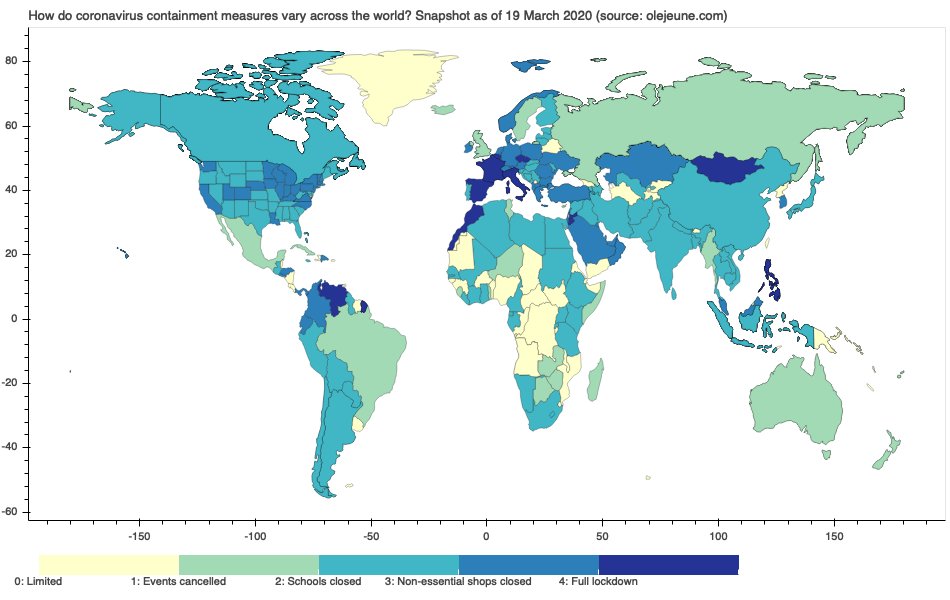This blog has been archived. A new one has been set up at this link.

The European Commission is to create its first ever common reserve of emergency medical equipment, with an initial budget of €50 million, of which €40 million is still subject budgetary approval. One or more member states can submit bids to host stockpiles and would be in charge of procuring the equipment.
Named the “rescEU stockpile”, the reserve would include intensive care medical equipment such as ventilators, reusable masks, vaccines, therapeutics, and laboratory supplies. rescEU is part of the EU Civil Protection Mechanism, a joint effort by EU member states and six other countries in Europe to prepare and respond to disasters.
The Bill enables action in 5 key areas: Increasing the available health and social care workforce; Easing the burden on frontline staff; Containing and slowing the virus – by reducing unnecessary social contacts; Managing the deceased with respect and dignity – by enabling the death management system to deal with increased demand for its services; Supporting people – by allowing them to claim Statutory Sick Pay from day one, and by supporting the food industry to maintain supplies.
Detail of the Bill can be found here and you can view the Bill itself here.
COST, an EU-funded programme that supports cross-border networking in research and innovation, said it is postponing the deadline for an open call for proposals from scientists, due to the coronavirus. It also suspended from 13 March all physical meetings and short-term scientific missions. The call deadline has been postponed to 29 October instead of 29 April, so researchers will have more time to develop their proposals.
A Nature Medicine paper based on publicly available data shows that, as of 29 February, the probability of dying after developing symptoms of COVID-19 in Wuhan is 1.4 per cent. The number is significantly lower than the confirmed case fatality risk of 4.5 per cent. The study also estimates those infected aged below 30 were 0.6 times more likely to die after developing symptoms. Infected people above 59 years were 5.1 times more likely to die.
The US government launched a big database of published research on COVID-19, to “to come together as companies, governments, and scientists and work to bring our best technologies to bear across biomedicine, epidemiology, AI, and other sciences”. The COVID-19 Open Research Dataset (CORD-19) is addressed to the world's artificial intelligence experts to develop text and data mining tools for coronavirus research. The initiatives involves Allen Institute for AI, Chan Zuckerberg Initiative (CZI), Microsoft, and the National Library of Medicine, and it is coordinated by Georgetown University. Kaggle, a Google subsidiary, and a data science company, announced a reward for those with best contributions.
Respiratory diseases specialist Synairgen has received expedited approval from the UK Medicines and Healthcare products Regulatory Agency (MHRA) for a pilot trial of its lead product SNG001 in 100 patients who have been hospitalized with severe COVID-19 symptoms. SNG001, an inhaled formulation of naturally-occurring beta interferon, is intended to activate antiviral immune reactions in the lung. The product is being tested in COVID-19 patients after showing a positive effect in asthma and in treating exacerbations of the lung disease chronic obstructive pulmonary disorder. “We have worked intensively with the relevant authorities and collaborators to enable SNG001 to be assessed in COVID-19 patients. SNG001 has been well tolerated in clinical trials in over 200 respiratory patients to date and has accelerated lung function recovery in two Phase II asthma trials in patients with a cold or flu infection,” said Richard Marsden, CEO of Synairgen.
Addex Therapeutics announced today it is postponing a clinical trial in Parkinson’s disease patients. The decision has been taken due to these patients being one of the highest risk category for severe COVID-19, and because the clinical sites that were due to conduct the study have been told to not to start any new trials. “We care about the well-being of all PD patients and do not wish to have them make the additional visits to doctors’ offices that are required in a clinical study, putting them at increased risk of contracting COVID-19,” said Roger Mills, chief medical officer of Addex.
The European Commission has announced a new deadline for the EIC accelerator call for startups and SMEs working on treating, testing, monitoring or other aspects of the Coronavirus outbreak. The new deadline is 20 March at 17:00. With a budget of €164 million, this call is “bottom up”, meaning there are no predefined thematic priorities and applicants with Coronavirus relevant innovations will be evaluated in the same way as other applicants. The initial deadline was 18 March.
A new systematic review and meta-analysis from University College London could help to inform public health and clinical management strategies, through the prioritisation of those at highest-risk of severe illness with COVID-19. The findings show that patients presenting shortness of breath and chronic obstructive pulmonary disease are the most likely to have severe COVID-19 and admission into intensive care units.


 A unique international forum for public research organisations and companies to connect their external engagement with strategic interests around their R&D system.
A unique international forum for public research organisations and companies to connect their external engagement with strategic interests around their R&D system.